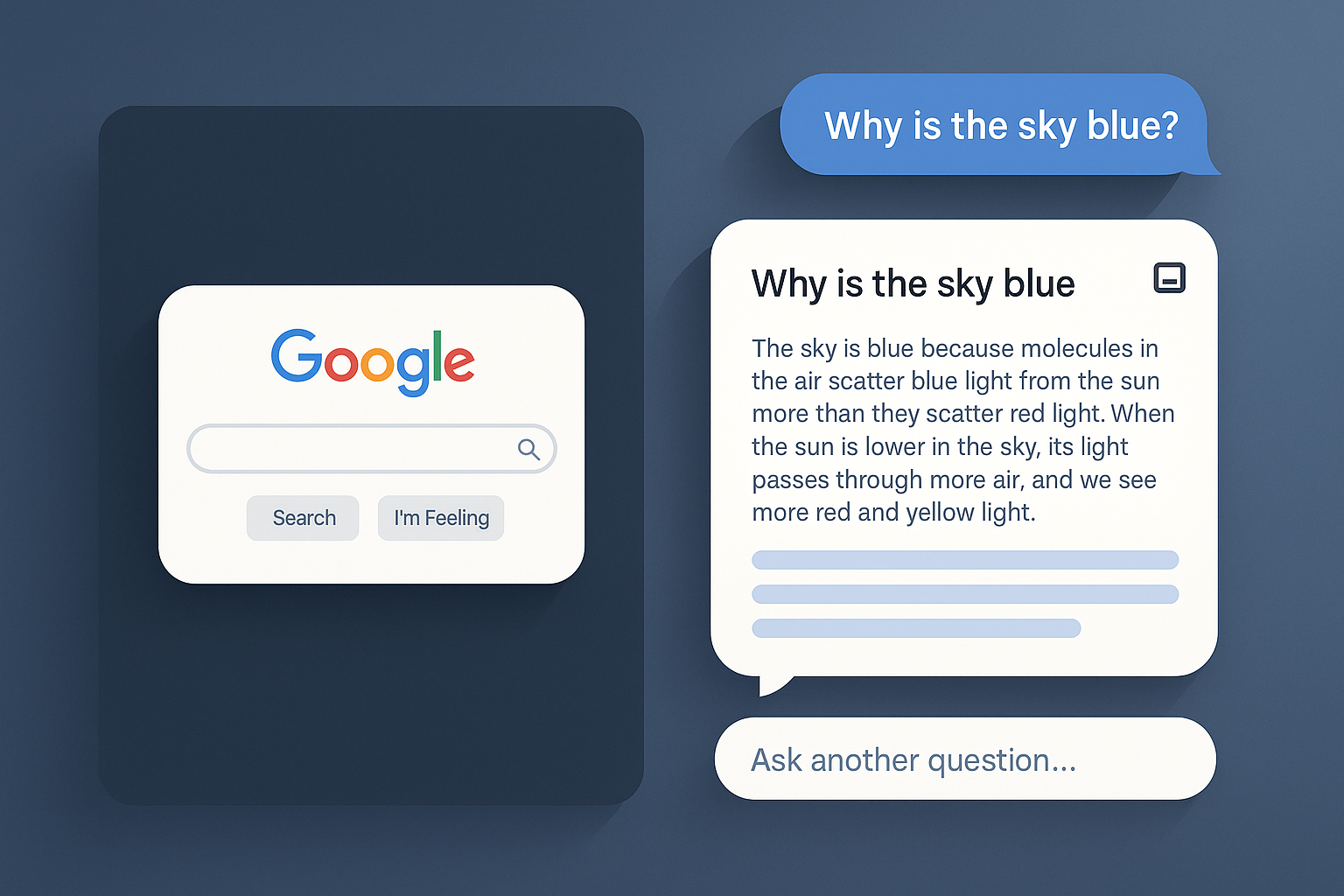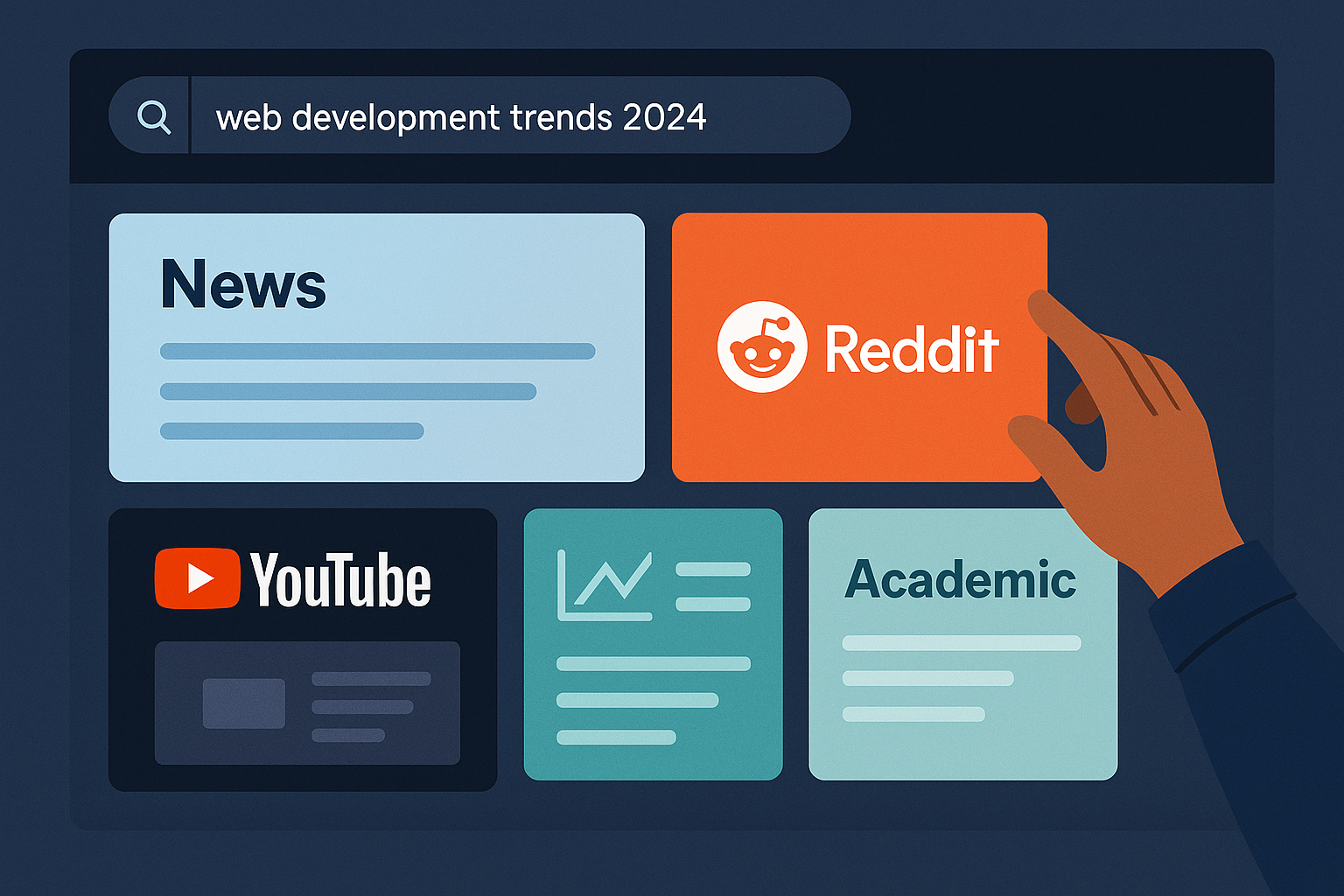Welcome to the Age of Research | 매거진에 참여하세요
Welcome to the Age of Research
#search #rag #perplexity #you #research #intention #keyword #question #query
Search Is Dying. Welcome to the Age of Research.
How do you search for information in 2025?
If you’re still typing a few keywords into Google, skimming ten blue links, and clicking through to a blog or Wikipedia page that method is quietly fading into history.
Search is no longer just search. It’s now explore and generate.
And new players are leading this shift. Think Perplexity.
Think You.com. These aren’t your parents’ search engines.
They don’t just return results—they understand your intent, summarize answers, cite sources, and even guide your next question.
Why Google-Style Search Has Hit a Wall
Google still processes billions of queries every day. But here’s what many users have started to feel:
“I spend more time interpreting search results than actually learning.”
And they’re not wrong. Three key reasons explain this frustration:
- SEO Spam Overload – Low-quality, clickbait content ranks high.
- Information Overload – Endless duplication of the same shallow info.
- Intent Mismatch – Results often ignore the why behind your question.
This isn’t just a problem of search accuracy—it’s a UX failure. A drain on time and cognitive energy.
That’s why LLM-powered search tools are now stepping in.

Perplexity: Search That Starts With the Answer
Perplexity is built on top of GPT-style large language models (LLMs), but it’s not just ChatGPT with search.
Its approach looks like this:
Your Question → Real-Time Web Search → Summarized Answer + Source Links
This Retrieval-Augmented Generation (RAG) pipeline ensures both accuracy and freshness.
Ask “Who are the main candidates for the 2025 U.S. election?” and Perplexity might return:
Names like Biden, Trump, RFK Jr.
Recent article links
Follow-up questions like “How do their policies differ?”
If you’re a Pro user, you can access Copilot mode, which allows for multi-step explorations.
It feels less like search and more like a research interview.
You.com: Build-Your-Own Search Engine
You.com takes an even more radical approach to search UX.
It offers modular results—meaning you can choose what blocks of content you want to see:
- Web summaries
- Reddit threads
- YouTube videos
- Twitter/X content
- Academic papers (via Semantic Scholar)
- Code snippets
- Images, and more
You can drag, hide, or prioritize these blocks, creating a highly personalized research interface.
This isn’t just "get me the answer"—it’s “let me explore my own way.”

And Google’s Response?
Google isn’t sleeping through this revolution. Since 2024, it’s rolled out SGE (Search Generative Experience) to offer answer-based results.
But there’s a catch:
- Ads still come first.
- Users still click raw links over summaries.
- SGE often feels like an add-on, not a new experience.
Google is stuck in a legacy model: an ad-driven empire.
Meanwhile, tools like Perplexity and You.com are user-first and research-first by design.
The Future of Search Is Hybrid
Will we stop “searching” altogether? Not quite. But we are seeing the tools evolve into something new:
- Summary + Sources + Exploration Flow
- From Search → Browsing → Knowledge Curation
- Agent-style tools like Perplexity Copilot or GPT-based research assistants
These tools aren’t replacing curiosity—they’re enhancing it.
Final Thought: It’s Time to Rethink Search
Search isn’t about finding the right answer anymore.
It’s about asking better questions, exploring faster, and interacting with knowledge in real time.
Perplexity and You.com aren’t just new search engines.
They’re new ways of thinking.
And maybe, just maybe, you’re no longer typing in keywords—you’re typing in thoughts.






